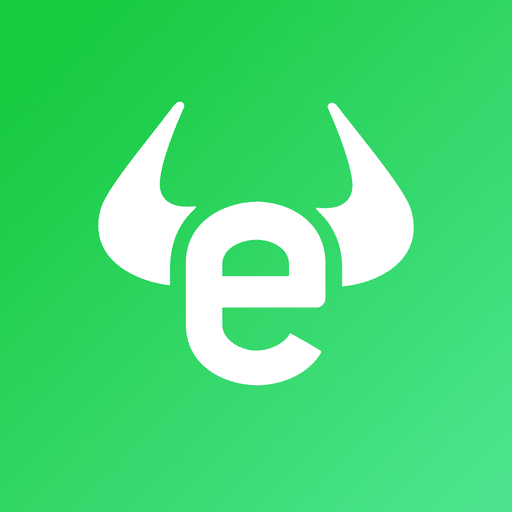Investment apps, are brokerage platforms available on a mobile device. This app lets new and experienced investors manage their investments in the financial market.
In this review, we’ve put together a list of the best apps for investing based on usability, fee structures, and investment options. They are meant for long term investing, while trading apps are suitable for active traders.
Best Apps for Investing 2024
Here is our list of the top investment apps for 2024, compared by usability, customer services, and research and tools offered.
- eToro
- Interactive Brokers
- Robinhood
- Merrill Edge
- Acorns
- Stash
- Webull
- Ally Invest
- SoFi Invest
- Invstr
- Wealthfront
- Betterment
- M1 Finance
- eTrade
- TD Ameritrade
- Fidelity
- Charles Schwab
eToro
eToro is a reputable fintech company that was established in 2007. It is regulated by the Financial Conduct Authority (FCA) in the UK and the Australian Securities and Investment Commission (ASIC) in Australia. The rest of their clients are served by the Cyprus Securities and Exchange Commission (CySEC).
This makes eToro a safe trading broker.
Their mobile app is available on both iOS and Android. It is available in 21 languages and has the same functionality as their web-based platform. What makes them a great choice is that their mobile app makes use of mobile functionality as well. These include push notifications and the ability to swipe left and right to access different tools.
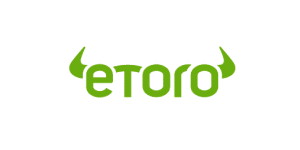
| Pros | Cons |
|---|---|
| Offer 15 cryptocurrencies | High minimums for most copy trading |
| Easy to use | |
| Great community of investors | |
| Copy Trading |
CFDs are complex instruments and come with a high risk of losing money rapidly due to leverage. {etoroCFDrisk}% of retail investor accounts lose money when trading CFDs with this provider. You should consider whether you understand how CFDs work and whether you can afford to take the high risk of losing your money.
Interactive Brokers
Interactive brokers are a great option for both advanced and retail clients. They offer two trading platforms, IBKR Lite and IBKR Pro. They also offer a mobile trading app called IBKR Mobile which is available on Android and iOS.
IBKR Mobile is available in the same languages as desktop and web-based platforms. However, it is not as user-friendly or sleek as its competitors.
The app offers the same great selection of order types as its web-based counterpart. It also offers asset market information and interactive chart functions.
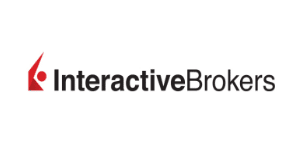
| Pros | Cons |
|---|---|
| Wide range of assets to invest in | Not Great for Beginners |
| Strong research tools and content | |
| Two-step login process |
Robinhood
Robinhood lets you buy and sell stocks without charging a commission fee. They also offer options, fractional shares, and cryptocurrencies.
Their app is great for active users since it has a lot of functionality and has a clean user interface. It also sports some basic research tools however, we advise that you pair it with additional research tools.
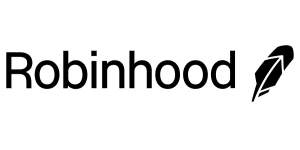
| Pros | Cons |
|---|---|
| Zero account minimums | Do not offer retirement accounts |
| Great user interface | Do not offer mutual funds or bonds |
| Cryptocurrency trading | Sub-par customer support |
Merrill Edge
The Merrill Edge app is available for both iOS and Android. It is easy to use and offers a safe two-step login process. However, their search functionality is lacking.
A downside is that it does not offer bond trading.

| Pros | Cons |
|---|---|
| User friendly | Poor search function |
| Two-step login process | |
| Face ID login |
Acorns
Acorns offers a great app that allows its users to automate their investments. It allows you to gather your ‘spare change’ and invest it in a portfolio.
What sets Acorns apart from the herd is that it has developed creative funding options like round-ups on purchases made and recurring transfers.
A downside of this app is that it charges a monthly subscription fee that ranges from $1 to $3 depending on your account.
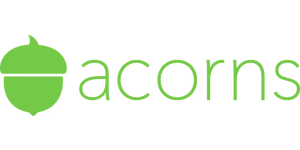
| Pros | Cons |
|---|---|
| Automated micro-investing | Is a subscription-based app |
| Offers a gamified app experience |
Stash
Much like Acorn, Stash is also a subscription-based app. Their monthly fees range from $1 to $9 per month.
What makes them great is that their platform is user-friendly and intuitive. They also do not charge any commission fees to invest.
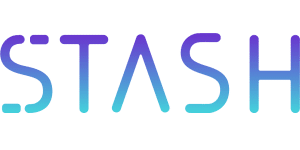
| Pros | Cons |
|---|---|
| Great educational content | Their smart portfolios don’t offer tax-loss harvesting |
| Offer fractional shares | High ETF expense ratio |
| Values-based investment offerings |
Webull
WeBull offers a fantastic mobile app for investing. Their app is known for its amazing research tools and technical charting.
WeBull is a good option for active and advanced investors. They offer stock trading, ETFs, cryptocurrency, and options. Webull also supports IRAs.

| Pros | Cons |
|---|---|
| Paper trading account | Their smart portfolios don’t offer tax-loss Real-time data is hidden behind a paywall |
| Amazing charting functions | Limited investment types |
Ally Invest
Ally Invest offers a great mobile app that caters to both beginners and advanced users. They offer a great selection of educational content.
A downside of Ally is that it charges high fees when compared to its competitors. They charge $4.95 for stock and ETFs and $0.65 for options.
If you’re an active trader, you can cash in on some nice discounts.
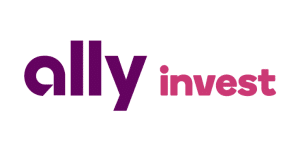
| Pros | Cons |
|---|---|
| User-friendly interface | Do not offer a two-step login process |
| Great search function | No price alerts |
| Offer a variety of order types | Do not offer mutual funds or bonds |
SoFi Invest
SoFi Invest is a good option for beginners since it offers robust educational content. It also lets you start with a few fractional shares called Stock Bits.
SoFi offers stocks, cryptocurrencies, and ETFs. Their stocks and ETFs are free to trade.
What makes them great is that they offer a managed profile product at no added costs.
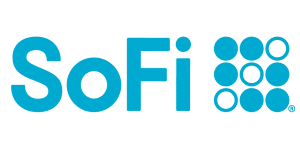
| Pros | Cons |
|---|---|
| Fractional share investing | Do not offer advanced research tools |
| Free automated investing | Limited financial assets |
| Great educational resources |
Invstr
Invstr is an investing app and is also considered an educational resource. It offers clients access to stocks, American depositary receipts (ADRs), ETFs, and fractional share investing.
Invstr also offers virtual stock trading games and an investing fantasy league which is pretty cool. These are great resources if you're a beginner and are looking for a fun way to get into trading and investing.
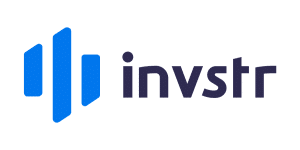
| Pros | Cons |
|---|---|
| Virtual trading games | Limited functionality |
| Low fees | |
| Great mobile app |
Wealthfront
Wealthfront is known as being a Robo-advisor. Wealthfront invests in passive accounts and charges their clients a management fee of 0.25%.
They also require an account minimum of $500 which is quite pricey. However, this does come with the benefit of supporting daily tax-loss harvesting.
A downside of Wealthfront is that it doesn’t offer fractional shares.
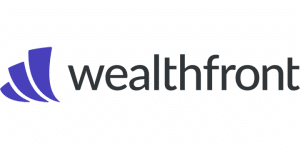
| Pros | Cons |
|---|---|
| Great Robo-Advisor | Do not offer fractional shares |
| Offer automatic portfolio rebalancing | Do not offer large-balance discounts |
| Offer low ETF expense ratios |
Betterment
Betterment, like Wealthfront, is a Robo-advisor. Betterment assigns their clients professionally designed investment ETF portfolios. What makes this great is that these accounts are tailored to your goals.
Betterment does charge an annual fee of $0.25 for account management. They also do not require an account minimum.
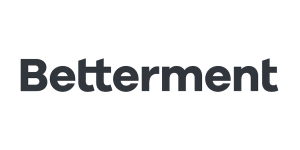
| Pros | Cons |
|---|---|
| Automated micro-investing | A monthly fee is charged on all account types |
| Gamified app experience |
M1 Finance
M1 Finance has a great brokerage account that offers commission-free investing, fractional shares, and automatic deposits.
M1 Finance does not require account minimums and is considered a free platform.
What makes it great is the security features. M1 Finance has a two-factor authentication login and uses 4096-bit encryption for data storage and transfer. This keeps your personal information safe.
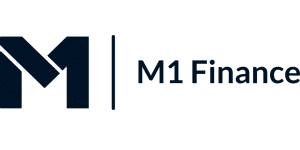
| Pros | Cons |
|---|---|
| Management fee | Do not offer tax-loss harvesting |
| Offer active and passive investment features | Not ideal for active traders |
| Offers stock trading and ETFs |
E-Trade
The e*Trade mobile app is available on both iOS and Android. It sports similar functioning and features as its web-based counterpart.
The mobile trading platform is easy to use and offers a vast range of order types. With the e*Trade app traders and investors can easily set alerts and notifications.
A downside of the e-Trade app is that it does not offer a two-step authentication.
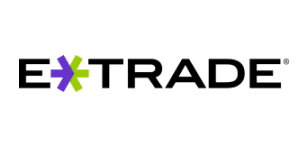
| Pros | Cons |
|---|---|
| User-friendly | No two-step authentication feature |
| Vast range of order types | Limited language options |
| Available on iOS and Android |
TD Ameritrade
TD Ameritrade offers two mobile apps. The apps have been geared toward different levels of trading skill and investment goals.
Their app offers stocks, ETFs, and options. But, the ThinkorSwim mobile app goes a step further and includes futures, forex, and conditional trading, virtual trading, and chart drawing features.
TD Ameritrade Mobile app is a great option for beginners and ThinkorSwim is best for more advanced traders.

| Pros | Cons |
|---|---|
| User-friendly | Only available in English |
| Offer a two-step login feature | |
| Great variety of order types |
Fidelity
Fidelity’s mobile app is available on iOS and Android. It is user-friendly and is more up-to-date than its web-based counterpart. Fidelity offers a great search function that is easy to use. They also offer research functions such as third-party evaluations. With Fidelity, you can set up alerts and push notifications easily.

| Pros | Cons |
|---|---|
| User-friendly | Do not offer a two-step login function |
| Great search functionality | |
| Offer a great selection of order types |
Charles Schwab
Charles Schwab’s mobile trading app is available for both iOS and Android.
In terms of functionality and design, it is similar to its web-based counterpart. The mobile app offers the same order types, and search functions.
The mobile app also offers both a one-step and two-step login function which is great.
A downside of this mobile app is that it does not offer traders the option to set alerts and push notifications.

| Pros | Cons |
|---|---|
| User-friendly | No option for setting alerts and push notifications |
| Offer order confirmations | |
| Touch and Face ID login |
Best for Investment App for Beginners
If you’re completely new to investments and financial markets, we recommend you check out eToro. eToro offers a great paper trading account which is ideal if you want to get some hands-on practice and experience. They also offer a video tutorial that explains how to use the app and some basic educational videos about financial markets and investing.
CFDs are complex instruments and come with a high risk of losing money rapidly due to leverage. 68% of retail investor accounts lose money when trading CFDs with this provider. You should consider whether you understand how CFDs work, and whether you can afford to take the high risk of losing your money.
Best App for Investing in the UK
If you’re based in the UK, we recommend you check out eToro. They are regulated by the Financial Conduct Authority (FCA) in the UK and are a reputable fintech company. This offers UK residents a sense of security.
Best App For Stock Investment
For stock investment, we recommend you check out eToro. eToro offers access to 17 stock markets and offers their clients trading with all popular stocks. These include Microsoft and Apple.
If you’re not sold on eToro, we also recommend trying out Charles Schwab. Charles Schwab offers clients fractional shares at low costs. You should keep in mind that they only cover North American stock markets.
CFDs are complex instruments and come with a high risk of losing money rapidly due to leverage. 68% of retail investor accounts lose money when trading CFDs with this provider. You should consider whether you understand how CFDs work, and whether you can afford to take the high risk of losing your money.
Best Spare Change Investing App
Acorns is the best option when it comes spare change investments. It’s an app that offers great features like diversified portfolios, automatic rebalancing, and investment support from a team of professionals. What makes Acorns great is that account holders have access to both their mobile app and web-based platform.
What are investment apps?
In simple terms, Investment Apps are trading platforms that are available on a mobile device. They offer a variety of services such as access to financial markets, it lets you buy and sell a plethora of financial assets such as stocks, ETFs, and options.
Previously, you’d have to have a stockbroker make trades on your behalf. However, online brokers negate the need for a stock broker.
With an app, you can easily invest from anywhere in the world, provided you have an internet connection.
It is also important to note that the features and tools available on the app will vary.
Picking the Best App
When picking an app for investing, you should follow the following criteria.
Regulation
The broker that you decide on should be regulated by a tier-1 financial institutions such as the Financial Conduct Authority (FCA), ASIC, MAS, and others. Choosing a broker that is regulated protects you and your financial assets against potential fraud. It offers clients a sense of security. But, we would advise that you research the financial institution as well, to ensure that they are reputable and trusted.
Fees & Commissions
Generally, the fee structure is easily found on the official websites. Checking the fee structure is essential to avoid any hidden fees.
Device Compatibility
Most apps support iOS and Android. Keep in mind that the iOS and Android versions also play a role in whether or not the app will work. This is something you should check.
Research and Trading Tools
Research and trading tools are essential for developing a trading strategy and deciding on which financial assets to pursue. As a general rule of thumb, the app that you choose should offer a robust selection of research and trading tools. It is also beneficial if they offer great research content as well. Tools you should look out for are live data and news feeds, historical data, and charting tools.
Education
Ensuring that the app you chose has robust educational content and tools is essential, especially if you’re a beginner. Educational tools and content can aid you in learning about trading and financial assets. It is a great way of familiarizing yourself with the financial markets and how assets operate. Educational tools and content include paper trading accounts, webinars, and tutorials.
What are your goals?
This is one of the most important questions that you need to consider before choosing an app. If your goal is a long-term investment, you would want to invest in assets like stocks and shares. If your goal is a short-term investment, you might want to look at dividend stocks or even ETFs. Your goals can act as a guide on what you might need from your app. It can also help you narrow down your options.
What can you invest in?
You should ensure that the app you choose offers the financial assets that you’d like to invest in and trade. If you want to invest in a specific asset, it would be wise to choose an app that offers some benefits for that asset. If you want a more diverse portfolio, we would advise that you choose an app that offers a wide range of assets to invest in.
Do you want to trade or invest?
It is important to be aware of the distinction between investing and trading. While both are methods of making a profit in the financial market, they operate differently. Investments are a long-term means of engaging with markets and generally apply to retirement accounts or college funds. Trading is a short-term means of engaging in financial markets and aims to maximize returns at a daily, monthly, or quarterly rate. Depending on your goals, you might choose either investments or trading. You might even decide to partake in both.
How to open an account?
- Once you’ve done your research and have chosen an broker, it is time to begin the application process.
- The application process will depend on the broker that you choose. It can also depend on the type of account you choose.
- Generally, when applying, you need some basic information about yourself. These include your identification or social security number, your date of birth, and your address. You might also need to answer some basic questions about your employment.
- Most applications take place online, but if you don’t feel comfortable, some brokers do offer physical applications that you can print out.
- Once you’ve applied, your account and personal information need to be verified by the broker. How long this process takes will vary.
FAQ
Which investments have the best returns?
There are a few high-return investments that we can discuss here. However, if you’re a beginner, we recommend starting with a simpler, lower-return investment. This is because high-return investments are closely linked to high risks.
Jumping into high-return investments without having the know-how can put your financial health at risk. If you’re a seasoned investor, this shouldn’t be an issue.
Here are a few high-return investments that you can look into:
Forex investments: Forex investments involve buying and selling different currencies. Countries have their currencies, and these currencies are valued with other currencies.
Given the high risks of fraud, you should choose a reputable and regulated broker. Forex.com is a great option for this.
High dividend stock: Dividends are a means of profit-sharing. It involves companies making regular payments to their shareholders. This gives investors a constant stream of income.
But, we should note that companies are not required by law to pay dividends. Stock dividends are generally paid through a reinvestment plan or a cash option.
Dividend stock can be high risk depending on the companies you choose to invest in. Companies with a long track record of low volatility and financial stability are better at dealing with market fluctuations than those without.
How much do I need to start investing?
Some brokers require high account minimums to start trading. Each broker has a different fee structure and we recommend that you check before making a decision. Checking the fee structures can help you avoid those pesky hidden fees.
If you’re a beginner and want to try out live stock broking without investing too much money, you could check out apps like Stash and Acorn. These apps let investors start an investment portfolio with a relatively small amount of capital.
Another issue that can affect how much you need to start investing in the asset type that you want to invest in. Stock shares can range in value from a couple of dollars to hundreds and thousands of dollars per share. Mutual funds generally have a minimum of $1,000 and more. The cheapest broker to start investing in mutual funds is Interactive brokers.
Our advice, as always, is to do your research before committing to anything.
Are Investment Apps safe?
Most apps form part of a larger platform. These brokers should be regulated by financial and government institutions.
They should also be insured by institutions like SIPC and include investor protections.
Most apps have numerous ways to keep you and your assets safe. Generally, apps have a two-step account login verification/authentication. Investors' personal information is also encrypted and there should be regular checks for hacking.
If you’re a frequent traveler or have an active lifestyle, we would advise against using your app on public wifi networks such as offices, coffee shops, malls, and hotels. You can look into getting a VPN if you want an extra layer of protection.
Which is better – SoFi or Stash?
Stash and SoFi both offer fractional shares and they offer IRA accounts. They both offer prebuilt portfolios that users can invest in.
Key differences are that SoFi offers cryptocurrency while Stash does not.
Stash offers online banking as well as a cash management feature in addition to the general brokerage services. Stash also charges a monthly fee ranging from $1 to $9.
SoFi is free to use when trading stocks and ETFs. However, SoFi does not offer custodial accounts, while Stash does offer them.
Which Is Better – Robinhood or Stash?
Both Robinhood and Stast don’t require a minimum investment to begin trading and offer taxable accounts and investment in ETFs.
Robinhood and Stash are available on both Android and iOS and offer investment in individual stocks.
A key difference between these apps is that Robinhood does not charge commission fees or account fees for their basic account, while Stash charges $1 per month for accounts under $5,000.
If you’re aiming to invest in designated SRI (socially responsible investing) portfolios, you should consider Stash.
If you’re interested in investing in cryptocurrencies or options, you should consider Robinhood.


